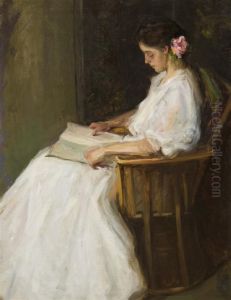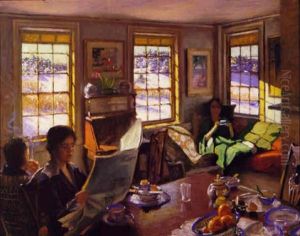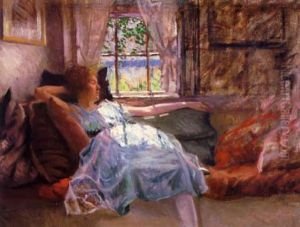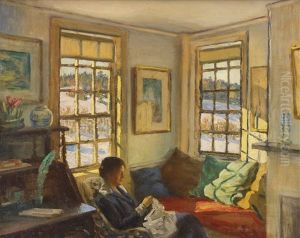William Wallace Gilchrist Paintings
William Wallace Gilchrist was an American composer known for his contributions to the world of classical music in the late 19th and early 20th centuries. Born on January 8, 1846, in Jersey City, New Jersey, Gilchrist showed an early interest in music, but his formal education in the field did not begin until he was in his twenties. Despite this relatively late start, Gilchrist quickly established himself as a prominent figure in the American music scene, particularly in Philadelphia, where he spent much of his career.
Gilchrist's work encompassed a wide range of musical forms, including orchestral compositions, chamber music, choral works, and songs. He was particularly noted for his choral music, which was performed by several prestigious choirs and societies of the time. Among his notable compositions are the cantata 'The Rose of Sharon,' which won the prestigious Mendelssohn Prize in Philadelphia in 1884, marking him as the first American composer to receive this award. His output also includes symphonies, overtures, and a significant body of vocal music, which was highly regarded for its lyrical qualities and expressive depth.
In addition to his accomplishments as a composer, Gilchrist played a vital role in the development of music education and the promotion of musical culture in Philadelphia. He served as the first president of the Music Teachers National Association and was a key figure in the establishment of the Philadelphia Musical Academy. His efforts in these areas helped to elevate the status of American music and musicians, contributing to the broader cultural uplift of the United States during a period of significant growth and change.
Gilchrist's influence extended beyond composition and education. He was a respected conductor and was involved in various music festivals and events, where he championed both American music and the works of European composers. His dedication to the arts was recognized with numerous awards and honors during his lifetime.
William Wallace Gilchrist passed away on December 20, 1916, in Philadelphia, Pennsylvania. His legacy is preserved through his compositions, which continue to be performed and recorded, and through the institutions and movements he helped to shape. Gilchrist's life and work reflect the dynamism of American music at the turn of the century, capturing the spirit of innovation and the pursuit of artistic excellence that defined the era.
























